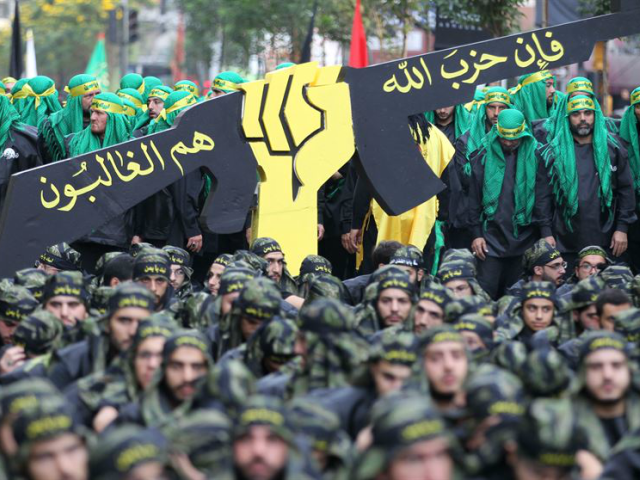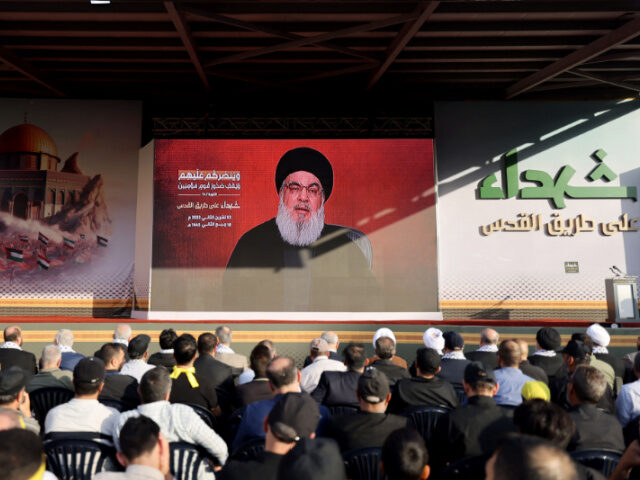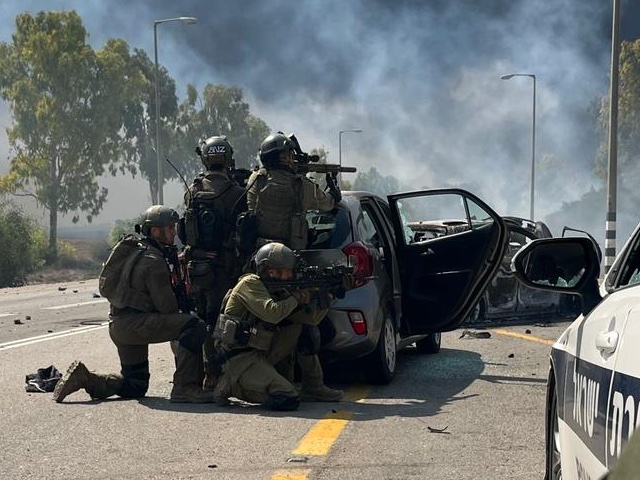Hassan Nasrallah, leader of the Iran-backed Lebanese terrorist organization and political party Hezbollah, made a rare public appearance on Friday to address the Israel-Hamas war after weeks of silence.
Observers declared Nasrallah’s speech a bigger letdown than the last Indiana Jones movie – a phoned-in ritual denunciation of Israel and tepid pledge of support for the Palestinians, rather than the anticipated fire-breathing speech and possible declaration of war.
The National compared expectations to reality, relaying a Lebanese social media joke that “this speech could’ve been an email” for all of the passion Nasrallah displayed:
The speech, framed as one of the most crucial of his career, had the entire nation on the edge of their seats amid the backdrop of deadly clashes along the Lebanese-Israeli border. Many in Lebanon had feared that the leader of the Iran-backed militia would officially declare war against Israel, which it fought in the 2006 war, potentially drawing the country into a regional conflagration.
The outlet explained that Nasrallah, instead, chose to play it safe, continuing:
He ruled out the prospect of an immediate all-out conflict in Lebanon and called for a ceasefire, all the while maintaining that “all options are open on the Lebanese front. All options are on the table, and we are ready for all possibilities.”
“The speech turned out to be less confrontational than anticipated. Mr Nasrallah has chosen to keep his options open, but it appears he has recognised the lack of appetite within the Lebanese population for Lebanon’s involvement in this conflict,” said political analyst Karim Bitar.
Bitar said most Lebanese were “breathing a sigh of relief” after Nasrallah delivered his underwhelming speech, although some worried that Nasrallah kept his options open for escalation in the future, and others were frankly disappointed that Hezbollah would back away from a chance to support the Palestinians and strike a blow at Israel.

Arab diplomats have condemned the Lebanese Shiite movement Hezbollah, whose members are seen here in October 2016 during Ashura commemorations in southern Beirut (AFP/ANWAR AMRO).
Hezbollah’s adversaries in the fractious Lebanese political system sensed weakness or at least a tacit admission that Lebanon is not in any shape to sustain a protracted Hezbollah battle with the Israel Defense Forces (IDF).
“Mr. Nasrallah’s speech also aimed to address his base, which is divided between radicals eager for a wider conflict and those who do not want a repeat of the 2006 war. Hezbollah could potentially fracture,” Sciences Po Paris Professor Karim El Mufti speculated.
The 2006 war – variously known as the Lebanon War, the Israel-Hezbollah War, or the July War – was a month-long conflict that began with Hezbollah rocket attacks on Israeli civilians and escalated to a Hezbollah ambush on an IDF patrol. The IDF imposed a naval blockade and invaded Lebanon to neutralize the threat.
Hezbollah survived after incurring more than a thousand casualties. The Israeli government assessed the war as a “missed opportunity” that failed to degrade Hezbollah’s capabilities enough. Nasrallah, who has been chief of the terrorist organization since 1992, has always portrayed the conflict as a morale-boosting victory for his forces, but billions of dollars of damage were inflicted on Lebanon, so residents who are not energetic members of Hezbollah are not eager to repeat the experience.
The Economist thought the speech cemented Nasrallah’s position as the top power broker in Lebanon’s divided government since the Hezbollah leader is clearly the “one man” who will decide if Lebanon goes to war, not the nominal prime minister or nonexistent president. (Lebanon has been unable to appoint a new president since Michel Aoun vacated the post over a year ago.)
Cutting through Nasrallah’s bombast, the Economist perceived three key points in Nasrallah’s speech: Hezbollah did not know Hamas was planning the 10/7 atrocities, Nasrallah wants the entire Arab world to join in saving Hamas from the consequences of its actions, and Hezbollah has already done plenty to help its Palestinian comrades by making itself enough of a threat to draw IDF units away from Gaza.
Nasrallah also signaled his continuing value to Iran by maintaining Hezbollah’s status as a “doomsday device” deterrent: a “powerful weapon” that can be triggered if Israel decides to strike at Iran for its role in the 10/7 bloodbath. Iran values that defensive buffer and would be reluctant to sacrifice it by sending Hezbollah into battle on behalf of Hamas.
Hezbollah cannot really afford a pitched battle with Israel, as Lebanon is already teetering on the edge of economic collapse and political chaos. Nasrallah has much to gain by restraint and everything to lose by committing to a devastating war on behalf of Hamas.
The Economist thought Nasrallah looked “tired” in his speech. The Jerusalem Post thought he looked nervous that someone would call his bluff and demand Hezbollah do more than spray a few rockets at Israeli population centers. The “international community” seems completely uninterested that Hezbollah deliberately targets civilians – a war crime that seems to be simply expected of the Palestinians and their allies.
“Israel’s leaders have signaled over the years that Hezbollah threats could have a serious impact on Lebanon – in other words, that any war would harm Hezbollah but also bring destruction to Lebanon, which cannot afford that destruction. The country is already bankrupt and has been ruined by Hezbollah. It doesn’t need more conflicts. Hezbollah has been cautioned to see what is happening in Gaza and not take risks,” the Jerusalem Post concluded.



COMMENTS
Please let us know if you're having issues with commenting.